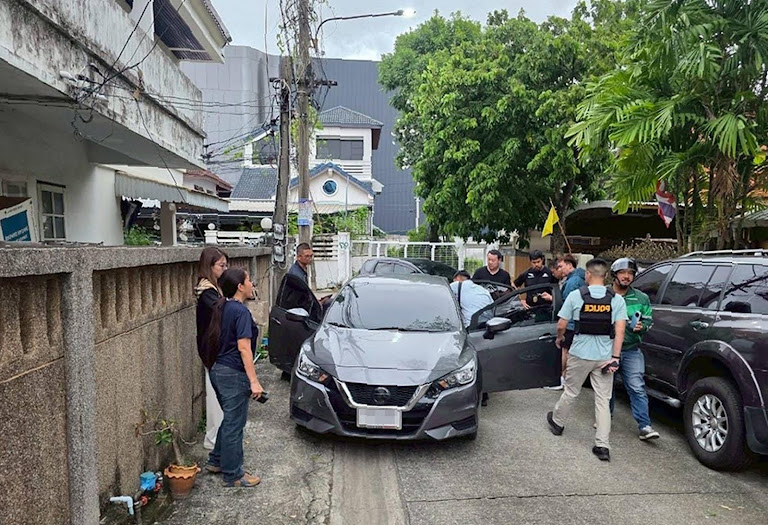Bangkok Bust Exposes China’s Criminal Reach Gripping Southeast Asia
Forged documents expose how Chinese fugitives exploit Southeast Asia’s vulnerabilities, seeking safe harbor from Beijing’s reach.

A grey Nissan Almera in Bangkok, a fistful of forged Thai driver’s licenses, and a Chinese fugitive named Wang Ming. It’s a B-movie plot playing out in real life. But scratch the surface, and this isn’t just a quirky crime story; it’s a microcosm of globalization’s discontents, a tension point where Chinese ambition meets Southeast Asian vulnerabilities. Reported by Khaosod, Wang Ming’s capture illuminates the complex dance between economic opportunity, regulatory arbitrage, and the enduring appeal of Southeast Asia as a space where rules — and rulers — are often negotiable.
Wang Ming, wanted in China for a bouquet of offenses including ID forgery and illegal gambling, represents more than just a rogue actor. He’s a symptom of capital flight, a byproduct of China’s extraordinary economic ascent, carrying with it the occasional seed of corruption. Thailand, with its porous borders, proximity to China, and substantial Chinese diaspora, has become an attractive, albeit imperfect, bolt-hole for those seeking to circumvent Chinese law. This is not solely about escaping justice; it’s about exploiting the seams in the global financial and legal architecture.
“Criminals often seek to exploit regulatory gaps and jurisdictional complexities to operate across borders,” notes Loretta Napoleoni, an expert on the economics of crime and terrorism.
The history here is crucial. Southeast Asia isn’t new to this role. From the opium fields of the Golden Triangle, which, fueled by Cold War geopolitics and CIA complicity, supplied the world’s heroin, to the sophisticated cyber scam operations of today, the region has long been a haven for illicit activity. Consider, for example, the “pig butchering” scams originating in compounds across Cambodia, where victims are lured into fraudulent investments via elaborate online personas. These operations, often staffed by trafficked workers and enabled by corrupt officials, demonstrate the region’s persistent vulnerability. As China’s economic gravitational pull intensifies, so too does the reach of its less savory elements.
Consider the proliferation of Chinese-run casinos and online gambling dens throughout Southeast Asia, meticulously designed to cater to Chinese citizens while skirting China’s rigid gambling prohibitions. This fuels a shadow economy operating outside conventional finance, nurturing corruption and inviting other criminal enterprises. Wang Ming’s involvement in illegal gambling likely situates him within this broader ecosystem.
The implications extend beyond mere headlines. Illicit capital influx can distort local economies, inflating property values, exacerbating social disparities, and, fundamentally, undermining the rule of law as criminal networks cultivate relationships with local authorities and institutions. This isn’t just a Thai problem; Cambodia, Laos, Myanmar — all face similar pressures. This raises critical questions about the region’s long-term stability and its ability to maintain autonomy in the face of growing external influence.
Wang Ming’s apprehension is more than an isolated incident; it mirrors a rebalancing of global power. China’s expanding influence, both legitimate and illicit, will inevitably radiate outwards. The task for nations like Thailand is not simply to police their borders, but to proactively manage this influence, fortify their sovereignty, and protect the integrity of their institutions. This requires bolstering legal frameworks, actively combating corruption, and fostering greater regional cooperation. The question now is not whether this challenge can be met, but whether it will be met in time to prevent a further erosion of governance and accountability across Southeast Asia.









